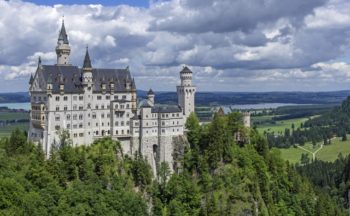 From Brothers Grimm fairy tales to legendary beer festivals, Germany is a land of contrasts. You can be devouring Frankfurters and Bratwurst one minute, and gazing up at the castle that inspired Walt Disney the next. It conjures up visions of medieval villages dotted with sweet half-timbered houses, and Alpine resorts flush with gingerbread-style buildings that look good enough to eat. History buffs will be utterly in their element, with cities that blend modern architecture with age-worn aesthetics. Not to mention a chance to dive headfirst into the Reich’s turbulent history.
From Brothers Grimm fairy tales to legendary beer festivals, Germany is a land of contrasts. You can be devouring Frankfurters and Bratwurst one minute, and gazing up at the castle that inspired Walt Disney the next. It conjures up visions of medieval villages dotted with sweet half-timbered houses, and Alpine resorts flush with gingerbread-style buildings that look good enough to eat. History buffs will be utterly in their element, with cities that blend modern architecture with age-worn aesthetics. Not to mention a chance to dive headfirst into the Reich’s turbulent history.
With so much to offer, it makes sense that while you’re in Germany you’ll want to meet as many of its ‘personalities’ as possible. The good news is, we’re making it that little bit easier with a lowdown on all things German.
Ready. Set. Go. This is your definitive guide to holidaying in Germany.
How long can I stay without a visa?
New Zealanders travelling to Europe for less than three months don’t need a visa in most places, including Germany. It’s also part of the “Schengen” area which means that once you’ve entered you can move throughout countries fellow “Schengen” countries without going through border controls.
What’s the local currency?
The Germans wheel and deal in Euros so don’t forget to stock up before you go.
Do I need to tip?
Menu prices in Germany are all inclusive, however it is common practice to round up (generally under 10%) if you were happy with the service. For example, if a bill was €21.30 you might give the server €30 and say you want to pay €25. Easy.
Transfers to and from the airport
Almost all of Germany’s airports are serviced by local trains, bar Berlin. There are still bus systems and taxis, though we guarantee that after a 24+ hour flight from NZ you won’t want to DIY. Instead, ask your House of Travel consultant about booking a transfer before you leave.
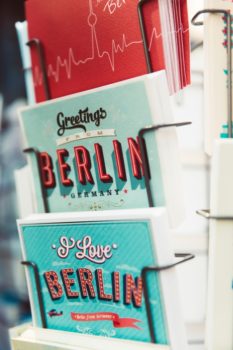 Getting around
Getting around
Germany’s major cities are well serviced by public transport which makes it easy to get around like a local. The nation is also powered by wonderfully efficient long-distance trains which are fast and affordable. Plus they’re a great way to soak up the scenery. Trains can fill up fast so it’s always best to book in advance – to find out more click here.
And then there’s the infamous German autobahn. Renowned for having no universal motorway speed limit, no German self-drive holiday is complete without hiring a VW Golf GTI and putting your foot down. Sensibly we may add.
Top 10 phrases
Just like any foreign country it’s always rewarding to learn a few words and phrases. Here’s a little something to get you started:
Hallo! – Hello!
Guten Morgen! – Good Morning!
Guten Tag! – Good day!
Guten Abend! – Good Evening!
Wie geht’s? – How are you?
Wie viel kostet das? – How much is that?
Ich komme aus Neuseeland – I am from New Zealand
Einen Tisch für [zwei/drei/vier], bitte – A table for [two/three/four], please.!
Ich hätte gern… – I would like…
Die Rechnung, bitte. – The bill, please.
Tschüß – Bye!
And if you’re really keen why not jump on the Duolingo bandwagon?
Where to have fun
Germany takes its festivals seriously, culminating in the legendary Oktoberfest. If beer isn’t quite your cup of tea there are festivals for music and theatre, food and wine and everything in-between. And of course, Christmas is nothing short of magical. When it comes to scenery nothing tops the impossibly beautiful Romantic Road. Stretching from Würzburg to Füssen, it showcases Bavarian forests, snow dusted mountains, Baroque palaces, medieval cities and of course, King Ludwig II’s iconic Neuschwanstein Castle.
Mobile usage – to roam or not to roam?
If your phone’s unlocked we highly recommend buying a prepaid German SIM. You can get a flat internet data plan from approximately €20 for 30 days which means you can email your loved ones, trawl through TripAdvisor, book trains and more.
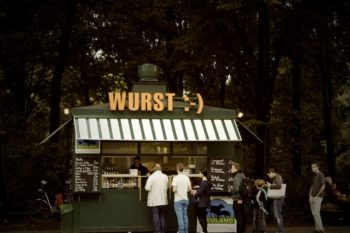 HOT’s top 5 German eats
HOT’s top 5 German eats
A spell in Germany just wouldn’t be complete without devouring the following staples:
Bratwurst – A classic type of German sausage made from veal, beef, or more commonly, pork.
Sauerbraten – Traditional German pot roast made with a variety of meats such as beef, venison, lamb, mutton and pork. As well as horse! If you’re not keen on the latter keep an eye out for the word ‘pferd’ which means horse in German.
Prinzregententorte – A luscious Bavarian torte thin layers of sponge cake interlaced with chocolate buttercream, then topped with lashings of apricot jam. Oh, and the outside is covered in a thick dark chocolate glaze.
Maultaschen – Similar to Italian ravioli, these doughy pasta parcels are filled with smoked meat, spinach, bread crumbs, onions and various herbs.
Currywurst – A traditional pork German sausage which is steamed and then fried, then cut into slices and seasoned with curry ketchup.







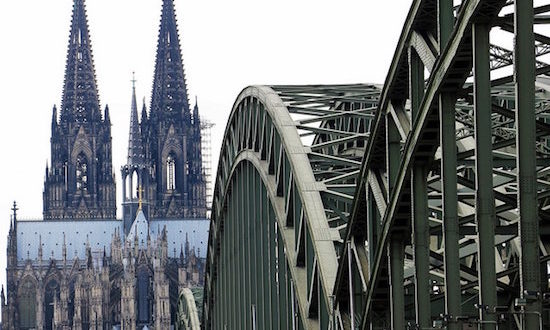
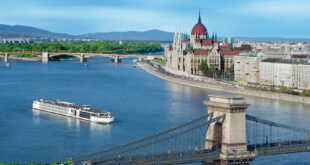
Join the Discussion
Type out your comment here:
You must be logged in to post a comment.